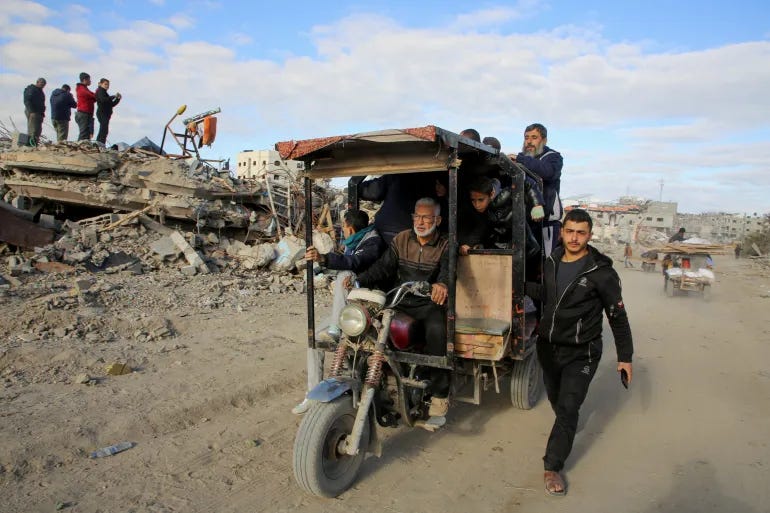Gaza Doctors Find Relief in Ceasefire, but Worry for the Future
WHO reports only half of Gaza’s hospitals are partially operational after 15 months of Israeli attacks.
After more than 15 months of relentless conflict, a ceasefire agreement between Israel and Hamas brought a moment of respite to Gaza. Dr. Jamal Salaha, a general practitioner at Al-Aqsa Martyrs Hospital in Deir el-Balah, expressed his relief as his hospital, for the first time in over a year, no longer saw a steady stream of wounded and deceased patients.
“This was the first time the hospital reception or emergency department was empty,” Salaha told Al Jazeera on Monday. The ceasefire, which came into effect the day before, ended 471 days of Israeli airstrikes and ground operations that claimed the lives of over 47,000 Palestinians and injured more than 111,000.
Salaha’s journey through the war began at Gaza City's al-Shifa Hospital in October 2023, where he worked in the neurosurgery department for 33 days until he had to relocate to Al-Aqsa due to ongoing airstrikes. In the harrowing months that followed, Salaha and his colleagues worked tirelessly, often treating patients in makeshift conditions due to shortages of medical supplies and staff. He recalled working with limited resources: performing surgeries on the floor, without gloves, and facing severe shortages of medications and ventilators.
The ceasefire announcement was “unbelievable” to Salaha, who described the moment as a much-needed break that allowed him to rest. However, his relief was tempered with caution, as he recognized the enormity of the destruction in Gaza. While many residents were celebrating the ceasefire and hoping for a return to normalcy, Salaha warned that the reality was far from this. “The state of the hospitals is very chaotic,” he said, emphasizing the urgent need for medical supplies to treat the remaining wounded.
The World Health Organization (WHO) echoed these concerns, reporting that only half of Gaza’s 36 hospitals remain partially operational. With most hospitals severely damaged, only 38 percent of primary healthcare centers are still functional.
Despite the ceasefire, which seemed to be holding in most parts of the Gaza Strip, isolated incidents of violence continued, including reports of injuries from Israeli forces in Rafah, a southern city in Gaza.
In northern Gaza, Mohammad Nemnem, a medical worker at the now-closed Kamal Adwan Hospital, described the extent of the devastation after Israeli attacks had rendered the facility completely unusable. "No department in the hospital can offer any medical service," he said. "The hospital needs massive efforts and a lot of time to be a hospital again that can provide people with medical services."
As Gaza begins to recover from the war, doctors like Salaha and Nemnem face the daunting challenge of rebuilding not only the medical infrastructure but also the health system that has been severely fractured by months of conflict.


